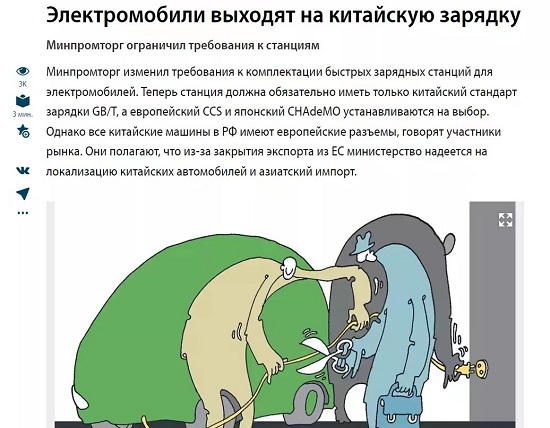Russian electric vehicle fast battery charging facility technology is required to switch to Chinese standards
According to reports, the Russian Ministry of Industry and Trade has revised the technical requirements for fast battery charging facilities for electric vehicles lithium batteries.
Now such EV battery charging stations must meet the Chinese standard GB/T, while the European CCS standard and the Japanese CHAdeMO standard are listed as optional.
70% share
The report pointed out that China is the world’s largest producer of lithium battery electric vehicles, so 70% of Russia’s electric vehicles will use Chinese charging stations in the next few years.

Russian electric vehicle fast charging facility technology is required to switch to Chinese standards
And in the middle of last month, there were media reports that a shortage of electronic components and severe sanctions from the West had brought Russia’s auto industry back to the late 1980s.
Russian officials now allow local automakers to ignore emission standards and can no longer equip their vehicles with important safety kits such as airbags, ESP, ABS and even seat belt pretensioners. The relaxation of these production standards will continue until February 1, 2023.
According to the report, before the conflict between Russia and Ukraine, Russia only allowed vehicles with emissions of Euro 5 and above on the road.
But with companies such as Bosch suspending deliveries of components such as engine management systems, emissions level adjustment has become extremely difficult.
The mayor of Moscow previously said the government would re-produce Soviet-era passenger cars under the Moskvich brand.
“We’re going to use Euro 0 standards, like in World War II, with gasoline cars, which is firewood.” Because petroleum fuels are used in the military, civilians have to use wood gasifiers.
In addition, for consumers, new cars that lack ESP, ABS, airbags and seat belt pretensioners have greatly reduced safety performance at today’s vehicle speeds and road standards, and some consumers may choose to delay buying new cars, or just buy a used car.



